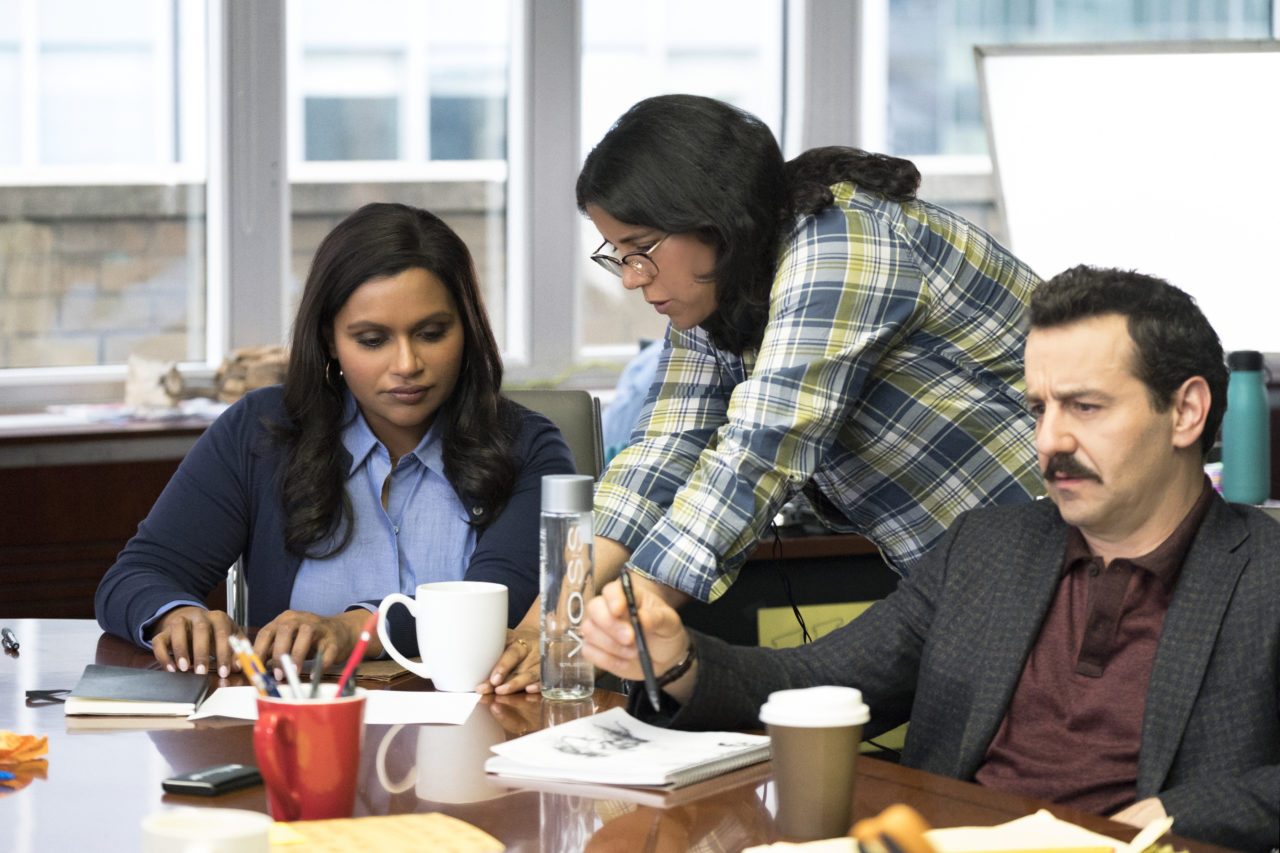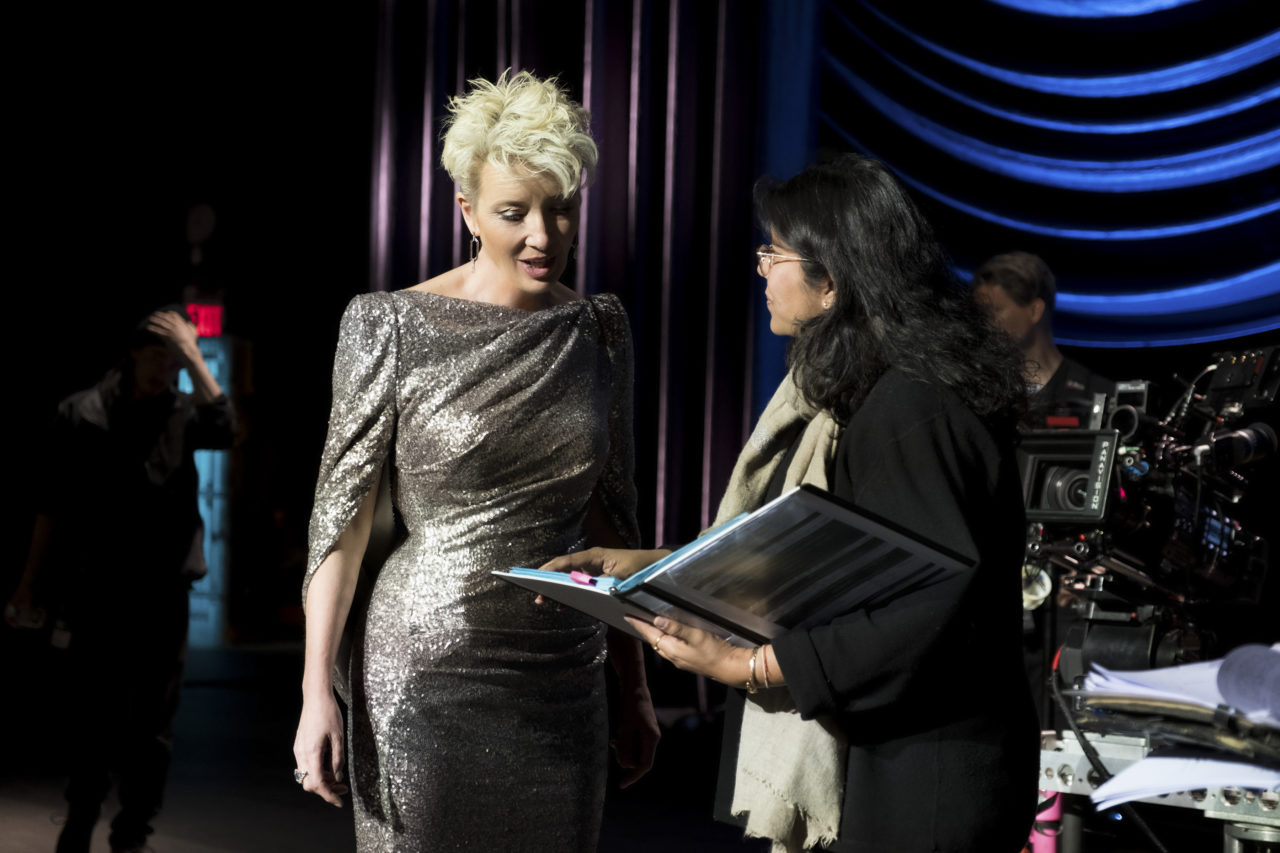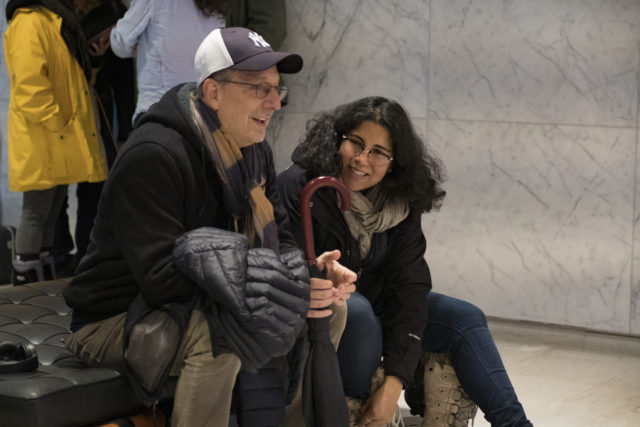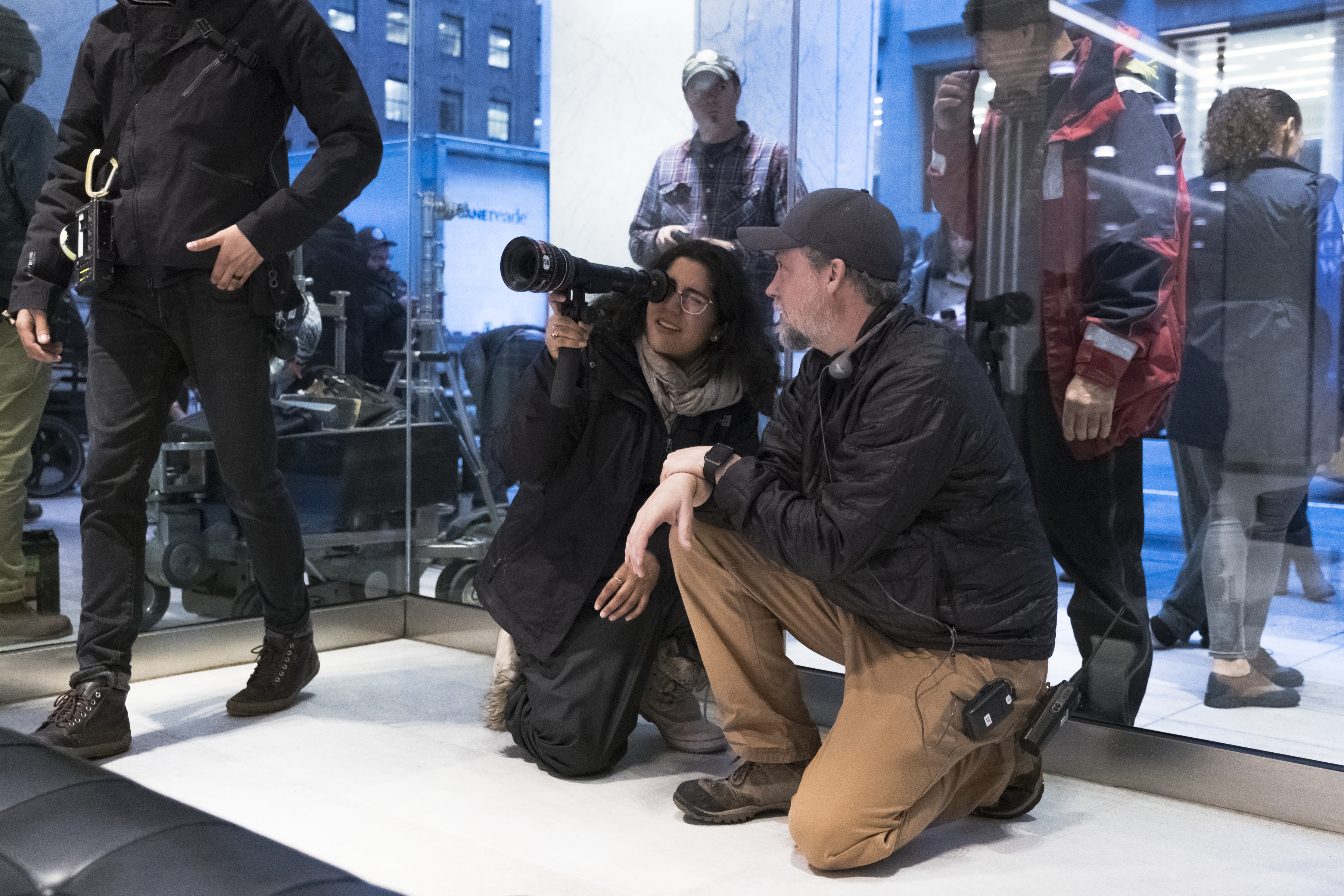Nisha Ganatra is a film and television powerhouse. From directing and producing episodes of “Transparent” to directing, writing, and starring in her award-winning film “Chutney Popcorn” (the film features queer Indian-Americans; Ganatra identifies as a lesbian), the powerhouse stays true to her desire to see diverse and realistic characters on-screen. A veteran of the film and TV industry, she has been working for over 20 years and received massive amounts of acclaim, including an Emmy nomination, a Golden Globe win, and multiple awards from national and global film festivals. What drives her work isn’t just whether or not she likes a script, though; her connection to the story is what helps her decide whether to take on a project.
“‘What do I have to bring to this movie’ and ‘Why should I spend two years of my life making this movie’ are pretty important questions to ask yourself I think,” Ganatra tells GO.
The most recent project that Nisha Ganatra felt a connection to is “Late Night,” a film written by Mindy Kaling that stars both the writer herself as well as Oscar-winning actress Emma Thompson. Nisha Ganatra directs the film, which centers around the all-white, all-male writing staff of “The Katherine Newbury Show,” that gets shaken up after newcomer Molly (played by Kaling) enters the scene. With a strong understanding of what comedy means to “normal” people, Molly gets the writers and Katherine Newbury herself (portrayed by Thompson) to change their voices and their views for the better.
Now, as Nisha Ganatra gears up for the nationwide release of “Late Night” on June 14th, she took the time to chat with GO about everything from why she chose this project to what it’s like working with Dame Emma Thompson.

GO Magazine: What was it about “Late Night” that initially drew you to the project?
Nisha Ganatra: “I mean, obviously, the chance to work with Emma Thompson was a huge draw, but also just the ability to talk about issues and things that I care so deeply about all in the form of a comedy. [Comedy] is sort of my favorite type of filmmaking and storytelling, so it was amazing to be able to tell stories that talked about feminism and inclusion and diversity and ageism and women in the workplace all in sort of one movie. It’s rare to sort of get to do that.”
GO: You were tackling so many different themes in this one film, but it never really felt lost in the scuffle or without direction. Was that because of the genre? Was the comedy aspect of the film that important to its central message?
NG: “People are more open to hearing messages when they feel they’re being entertained. Really, if you start sort of telling someone what to think or what to do, they kind of close off immediately. I mean, I don’t want to see movies where people are telling me what to think and what to do. I assume nobody else wants that as well! But comedy is always sort of tasked with pushing the envelope in society and saying the things that everyone’s afraid of saying. That’s what I love and respect about comedy so much, so I think it’s it’s just one of those things where if you are entertaining, first and foremost, and funny, some people are more open to whatever sneaky message you’re getting in there.”
GO: What was it like getting to work with a tour de force like Emma Thompson? She’s such a weighty figure on and off-screen that I can only imagine it must’ve changed the way you directed at least a little bit!
NG: “Oh my god, it was a dream. Emma Thompson is, I think, the finest actor working today. She’s a real treasure of an artist, and to direct her and just have that experience where, if you have such a fine artist executing your notes so perfectly, you really grow … because it’s not the same as directing. … Directing that high caliber of an actor with them putting themselves in your hands and trusting you completely [changes] your game as the director because you have to meet them where they are. [Except,] you know none of us will ever meet Emma where she is. You know seeing her trust me to guide her performance and working together was just a real joy, and I feel like I’m spoiled for life and I only want to [work] with Emma Thompson from now on.”

GO: Your film, “Late Night,” was the record-breaking deal at this year’s Sundance with a $13 million deal with Amazon Studios. Many refer to this as a “Sundance Moment.” Going into the film, was that something you were striving for or was it a huge happy surprise?
NG: “It’s so surprising to me! I finished the movie maybe like 4 days before going to Sundance, so I was still in a bit of a daze. Also, I think it’s so funny just the fact that you know every time you read about Sundance and Indiewire or a filmmaker, you’re always sort of seeing a young guy being the person that’s like, ‘I won Sundance!’ It’s never like an Indian-American woman holding a baby who wins Sundance. So, it took a few days for it to sink in, for me to think, ‘Oh, it’s my movie. This is a movie that is the story of Sundance.’ I never expected it would break a sale record; that is just unheard of for a female-led movie. It was really heartening, and it really tells you something. … I don’t think it’s a surprise or an accident that Jenn Salke is in charge of acquisitions at Amazon and a female-led movie got bought for the record-breaking sale. I think for so long it’s been in the hands of a small group of men, and it’s really interesting how what’s happening behind the scenes changes what gets put in theaters and advertising and what gets attention.”
GO: A lot of your work seems to center around the idea of diversity and representation, like your showing of queer Indian-Americans in “Chutney Popcorn,” your work with transgender experience in “Transparent,” and now “Late Night,” which has such strong representation for both women and people of color. Why are these kinds of projects your M.O.?
NG: “I think I just want to see things that are more representative of the community that I witness in real life. It’s kind of this weird science fiction weirdness of America. We look around us, and it’s so diverse and inclusive in our country, but then we look on-screen and it’s so homogeneous and white. It just never made sense to me, and film is such a powerful medium that if you want to create change, film and television is a great way to do it. … For me, there were no Indian-Americans on-screen ever, and there were certainly no gay Indian-Americans on-screen. I felt like if we can’t even exist in cinema or film or culture, then how are we gonna create any sort of change or increase empathy? I think the first step was just representation and telling the stories and putting them on screen in the first place, and that was the big agenda with ‘Chutney Popcorn.’ [It] was putting Indian-American families on-screen, because we had only seen really like Indians portrayed as from India, or in India, or British, but no one was showing sort of Indian-Americans. I think I really just desperately wanted to see it, so I had to create it.”
GO: As well as your film directing, you’ve racked up quite a resume of directing television shows. From “The Mindy Project,” to “Mr. Robot,” to “Dear White People,” you’ve basically had a hand in every single corner of the TV world. Is there a certain draw to television for you, or did your career just kind of fall that way?
NG: “Well, it’s funny. I was working in film for a very long time and couldn’t get a job in TV for so long. Recently, after I did transparent, I’ve sort of done a lot of TV in the last couple of years. It’s so funny, because now these magazines will be like, ‘TV veteran,’ and I was like, ‘What? Really? You wouldn’t even let me do the job!’ My friend was like, ‘it’s like the opposite of being called an overnight sensation.’ … I think the door was closed me for so long that, when it opened, I just kind of said yes to everything and kind of did too much work in the last couple of years in TV. So, now it looks like I have all these credits, but, if you were to look, they’re all in the last 2 years.”

GO: What’s your best piece of advice for young filmmakers?
NG: “I think I want young filmmakers to know that no one’s ever going to give you permission to tell your story, so you just have to tell it. Film is an art and a craft and, if you can, study it. You don’t have to go to film school! I love film school and think its the best thing in the world, but it’s a really privileged thing to do to go to film school. You don’t have to do that. You can really learn from watching others. The mentorship and apprenticeship is such a beautiful thing of our craft. Really make sure that, when you tell your story, you do it in the best way possible. Don’t sort of shoot it on an iPhone just because you can. Make sure you are really paying attention to all the amazing collaborative positions that come together to make cinema the most collaborative art. To tell that story together with other filmmakers and other artists—it’s a real privilege. Just make sure you know that.”
Nisha Ganatra’s latest directorial project, “Late Night” opens in theaters nationwide on June 14th and stars Mindy Kaling and Emma Thompson. Nisha Ganatra can be found at NishaGanatra.com or on Twitter @NishaGanatra.


What Do You Think?